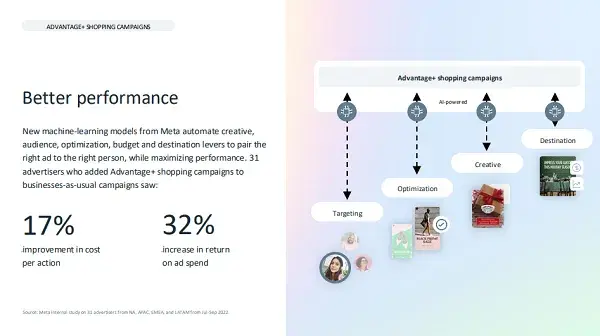Another Crazy Day in AI: The Science Behind Emotional Role-Playing Agents
- Wowza Team

- Dec 2, 2024
- 3 min read

Hello, AI Enthusiasts.
As we settle back into the workweek after Thanksgiving, here’s your latest in AI news:
Researchers from Beijing University of Posts and Telecommunications and Yunic.AI are diving into the concept of AI emotional intelligence, with a study that could fundamentally change our approach to machine learning by allowing AI to remember and respond with emotional context. 🤖
Plus, discover why over 140,000 developers jumped at the chance to take Google and Kaggle's five-day generative AI course. And check out how Meta’s AI ads are boosting Return on Ad Spend (ROAS) by an impressive 22%. 📈
Here's another crazy day in AI:
A new way machines learn to recall
Inside Google and Kaggle’s massive generative AI course
How Meta’s AI ads are boosting ROAS by 22%
Some AI tools to try out
TODAY'S FEATURED ITEM: How Emotional Recall Can Improve AI

Image Credit:Wowza (created with Ideogram)
How do machines learn to remember like humans do?
A new framework called Emotional RAG explores how AI might better recall and apply information by incorporating emotional context. Inspired by the human brain’s Mood-Dependent Memory theory, the research seeks to make AI memory retrieval feel more natural and adaptive, particularly in applications like virtual assistants or role-playing agents. By blending emotional cues with advanced AI memory systems, the study hints at an AI that could interact in a way that feels more aligned with human intuition.
Emotional RAG uses a dual-retrieval process, drawing on both semantic (content-based) and emotional (tone-based) factors. The result is AI agents with improved consistency in personality and communication. The study tested this approach using datasets like InCharacter and CharacterEval, showing promising results.
What’s at the heart of Emotional RAG?
Contextualized memory: Emotional cues guide how AI recalls and applies past information.
Dual memory retrieval: Merges semantic content with emotional tone for nuanced responses.
Enhanced communication: Results in more consistent personality traits in conversational AI.
Scalable application: Can be integrated into AI models like GPT-3.5.
This research doesn’t imply that AI is on the cusp of "feeling" emotions; rather, it focuses on how understanding emotional contexts can shape memory and enhance AI applications. For instance, an emotionally nuanced retrieval system might enable an AI virtual assistant to tailor its tone to better suit a user’s mood, making interactions smoother and more personalized.
While Emotional RAG is still in its early stages, its potential extends beyond improving conversations. Imagine learning tools that adapt to students’ moods or therapy bots that pick up on emotional cues to provide more supportive guidance.
However, these advancements raise important questions. If AI becomes adept at mirroring emotional responses, where do we draw the line between simulation and manipulation? Emotionally informed AI must be developed with transparency and clear boundaries to ensure trust and ethical use. Balancing innovation with responsibility will be crucial in determining how successfully this technology integrates into everyday life.
Read the full paper here.
OTHER INTERESTING AI HIGHLIGHTS:
Inside Google and Kaggle’s Massive Generative AI Course
/D. Sculley (EO, Kaggle) and A. Nawalgaria (Senior Staff Machine Learning Engineer, Google) on Google Blogs
Google and Kaggle launched a free five-day live course on generative AI, drawing over 140,000 participants in just 20 days. The GenAI Intensive covered foundational topics like large language models, embeddings, and MLOps while offering hands-on labs with tools like Gemini API and Vertex AI. Live sessions, podcasts, and an active Discord community provided additional learning opportunities. The course content is now available in a self-paced format on Kaggle Learn for those who missed the live event.
Read more here.
How Meta’s AI Ads Are Boosting ROAS by 22%
/Andrew Hutchinson, Social Media Today
Meta’s Advantage+ ad campaigns, powered by AI, are transforming ad personalization and targeting. Leveraging its Andromeda system, Meta optimizes ad matching to improve engagement and ROI. Advertisers who switched to AI-driven targeting reported a 22% increase in return on ad spend (ROAS), while those using AI image generation saw a 7% boost in conversions. With over a million advertisers generating 15 million AI-based ads monthly, Meta’s tools demonstrate how AI is reshaping ad performance and strategy.
Read more here.
SOME AI TOOLS TO TRY OUT:
That’s a wrap on today’s Almost Daily craziness.
Catch us almost every day—almost! 😉
EXCITING NEWS:
The Another Crazy Day in AI newsletter is now on LinkedIn!!!

Leveraging AI for Enhanced Content: As part of our commitment to exploring new technologies, we used AI to help curate and refine our newsletters. This enriches our content and keeps us at the forefront of digital innovation, ensuring you stay informed with the latest trends and developments.

![arXiv:2410.23041v1 [cs.AI] 30 Oct 2024](https://static.wixstatic.com/media/16685e_feb4c2f1e58642deb76ca4b794441566~mv2.png/v1/fill/w_980,h_491,al_c,q_90,usm_0.66_1.00_0.01,enc_avif,quality_auto/16685e_feb4c2f1e58642deb76ca4b794441566~mv2.png)
![arXiv:2410.23041v1 [cs.AI] 30 Oct 2024](https://static.wixstatic.com/media/16685e_c46ef7a91cf3498db89871bdb827ddd6~mv2.png/v1/fill/w_980,h_348,al_c,q_85,usm_0.66_1.00_0.01,enc_avif,quality_auto/16685e_c46ef7a91cf3498db89871bdb827ddd6~mv2.png)





Comments